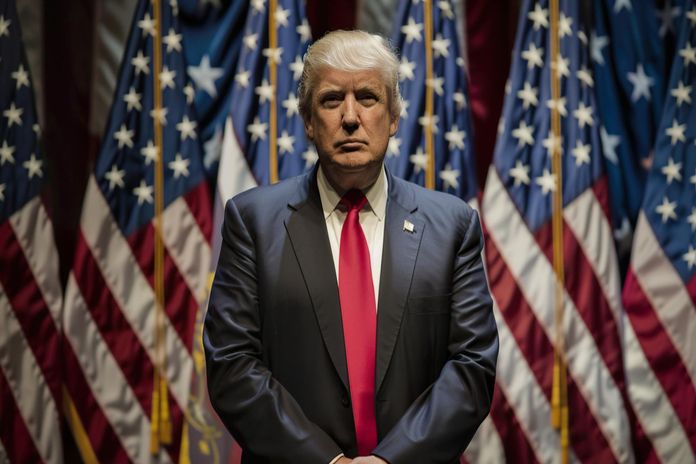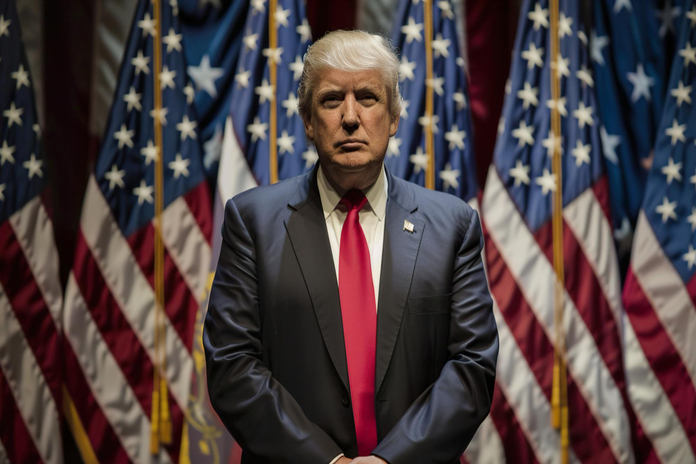- Projects will showcase across four Realms: Culture & Community, Decentralized Finance, Gaming and Etherlink at the iconic CHIJMES Hall. The event will be held at a restored early Gothic style 19th Century chapel that is now a national monument.
- Tezos Realm will be headlined by renowned DJ Agoria aka Sébastien Devaud , a longtime Tezos ecosystem member passionate about biological generative art whose work has been displayed at the likes of Musée d’Orsay.
- Visitors can experience interactive activities such as earning free tortilla chips and dips every time the Dips Dollar Cost Averaging (DDCA) simulation capitalizes on market dips at the Renora showcase, play OCV Lab’s emoji matching game and mint their score on the blockchain, get their Tezos Realm Proof of Attendance with the decentralized proof of identity application YourD, and more.
SINGAPORE, Sept. 15, 2024 /CNW/ — The Tezos blockchain will be in the spotlight during TOKEN2049 week with Web3 ecosystem builder TZ APAC hosting Tezos Realm at the iconic CHIJMES Hall. Held on 18 September from 6.30pm onwards, the event will showcase 15 innovative projects building on Tezos, a pioneering Layer 1 Proof-of-Stake blockchain, and Etherlink, an EVM-compatible Layer 2 blockchain powered by Tezos Smart Rollups.
Tezos Realm will feature four dedicated ‘Realms’ designed to help visitors experience the real-world innovation coming out of the Tezos and Etherlink ecosystems.
In the Etherlink Realm, visitors will be able to participate in a hands-on demo of the Kredete app to understand how the platform helps African immigrants in the diaspora send money back home instantly with low fees, while also helping users build credit through the utilization of blockchain technology. Other showcases in the Etherlink Realm include UHT (a platform gamifying good healthy practices), Questflow (an orchestration layer of multi-agent economy that turns users’ intents into multi-agent actions), TaskOn (a Web3 Community Growth Platform) and YourD (a Web 3.0 RegTech infrastructure provider offering data management, login, and crypto payment solutions).
Gaming enthusiasts can look forward to interactive experiences at the Gaming Realm, such as minting their first NFT while playing BattleRise. Ladder Protocol (a decentralized AMM protocol that provides instant liquidity for a range of NFTs) will also showcase at the Gaming Realm.
Over at the DeFi Realm, Renora will run a simulation of how Dips Dollar Cost Averaging (DDCA) helps in capitalizing on market dips. Visitors can experience the exhilaration of market dips and enjoy chips with dips as they experience the DDCA simulation. Renora will showcase alongside up-and-coming DeFi applications SuperLend and Hanji.
Visitors will be treated to a variety of immersive experiences at the Culture & Community Realm, meeting the people behind the top decentralized applications (dApps) used by creatives such as Objkt, Tesserart, akaSwap and OnChainVision Labs. They will also get a fresh headshot and join the movement to empower women at the forefront of art, tech and culture at the World of Women (WoW) showcase.
At the heart of the space will be a Tezos X showcase that will take visitors through the vision for the future of Tezos.
Of the 15 projects showcasing, seven were a part of this year’s Fortify Labs by TZ APAC cohort that serves to empower projects building on Tezos and Etherlink to become market-ready and commercially successful Web3 companies. They include akaSwap, OnChainVision Labs, Renora, Questflow, TaskOn, YourD and Ladder.
Visitors’ journeys through the Realms can be likened to an in-person version of how Web3 questing and community rewards programs are done. Upon entry, visitors will receive a stamp rally card that they will take with them as they visit the showcases. An ink stamp will be made on the stamp rally cards for every interaction or “mission” a visitor makes with a project. With at least 5 stamps on the stamp rally card, visitors can unlock exclusive merchandise “airdrops” such as a Tezos Realm t-shirt and a Tezos travel gadget bag. This physical experience will then transition on chain after the event, where visitors can continue exploring the projects through Season 3 of TZ Apex, a Community Rewards Program by TZ APAC.
Season 3 of TZ Apex also functions as the platform for virtual visitors—those unable to attend the onsite event in Singapore—to experience the vibrancy of the Tezos ecosystem. Through online quests, virtual visitors will be able to interact with projects showcasing on Tezos Realm and earn rewards simultaneously.
Renowned artist and trailblazer in the Web3 digital art world DJ Agoria will headline Tezos Realm. He is a prominent figure in the international electronic music scene and has made waves by presenting works at Musée d’Orsay surrounding biological generative art, which refers to the creation of works using algorithms, artificial intelligence and data from the living world. His creative practice combines art, music, the Metaverse and science, with the aim of bringing the living world into the “blockchain”. Warming up the stage are two talented Singaporean DJs: Amanda Chuin, known for her uncanny ability to read the crowd and adjust the music to match the room’s energy, and KRSTN, who brings an eclectic mix ranging from afro beats to baile funk, and hip hop to downtempo.
David Tng, Managing Director at TZ APAC, said: “The objective of Tezos Realm is to celebrate the community and innovation that resides across the different verticals within the Tezos ecosystem. We would like to give all web3 or web3-curious attendees a glimpse of the real-world applications by developers, builders and participants in the Tezos and Etherlink ecosystems. Whether you are an artist new to Web3, a cryptography enthusiast, or an aspiring builder who is interested in Arts, DeFi or Gaming, there will be something compelling on display for everyone.”
Tezos Realm will be held at the iconic CHIJMES Hall, a restored early Gothic style 19th Century chapel that is now a national monument. The venue is accessible from the main TOKEN2049 conference venue through public transport and taxi. The event will be one of many Tezos ecosystem activities held during TOKEN2049 week, a full list of which can be accessed through this article.
Visitors can sign up for Tezos Realm on the official event Luma page, while members of the media can sign up through the media registration link.
About Tezos
Tezos is smart money, redefining what it means to hold and exchange value in a digitally connected world. A self-upgradable and energy-efficient Proof-of-Stake blockchain with a proven track record, Tezos seamlessly adopts tomorrow’s innovations without network disruptions today. For more information, please visitwww.tezos.com.
About Etherlink
Etherlink is an EVM-compatible Layer 2 blockchain powered by Tezos Smart Rollups. It’s permissionless, inherits Tezos Layer 1 security, and features a decentralized governance model, fraud proofs, and censorship resistance. It’s fast, fair and (nearly) free with extremely low transaction costs, and features MEV protection by design.
About TZ APAC
TZ APAC is a web3 ecosystem builder empowering founders, creators, developers and institution leaders to thrive. With dedicated teams across Asia, TZ APAC is hyper-local at heart with a mission to nurture the next generation of DeFi, Gaming and Culture & Community champions in the region. TZ APAC’s commitment to building a strong network of Web3 startups, grassroot communities and global organizations is accelerating Tezos as the blockchain of choice in Asia. TZ APAC is supported by the Tezos Foundation and is headquartered in Singapore.
 View original content:https://www.prnewswire.com/news-releases/15-game-changing-projects-on-tezos-and-etherlink-will-showcase-at-tezos-realm-during-token2049-week-302248238.html
View original content:https://www.prnewswire.com/news-releases/15-game-changing-projects-on-tezos-and-etherlink-will-showcase-at-tezos-realm-during-token2049-week-302248238.html
SOURCE TZ APAC

Featured Image: depositphotos @ nils
Disclaimer








